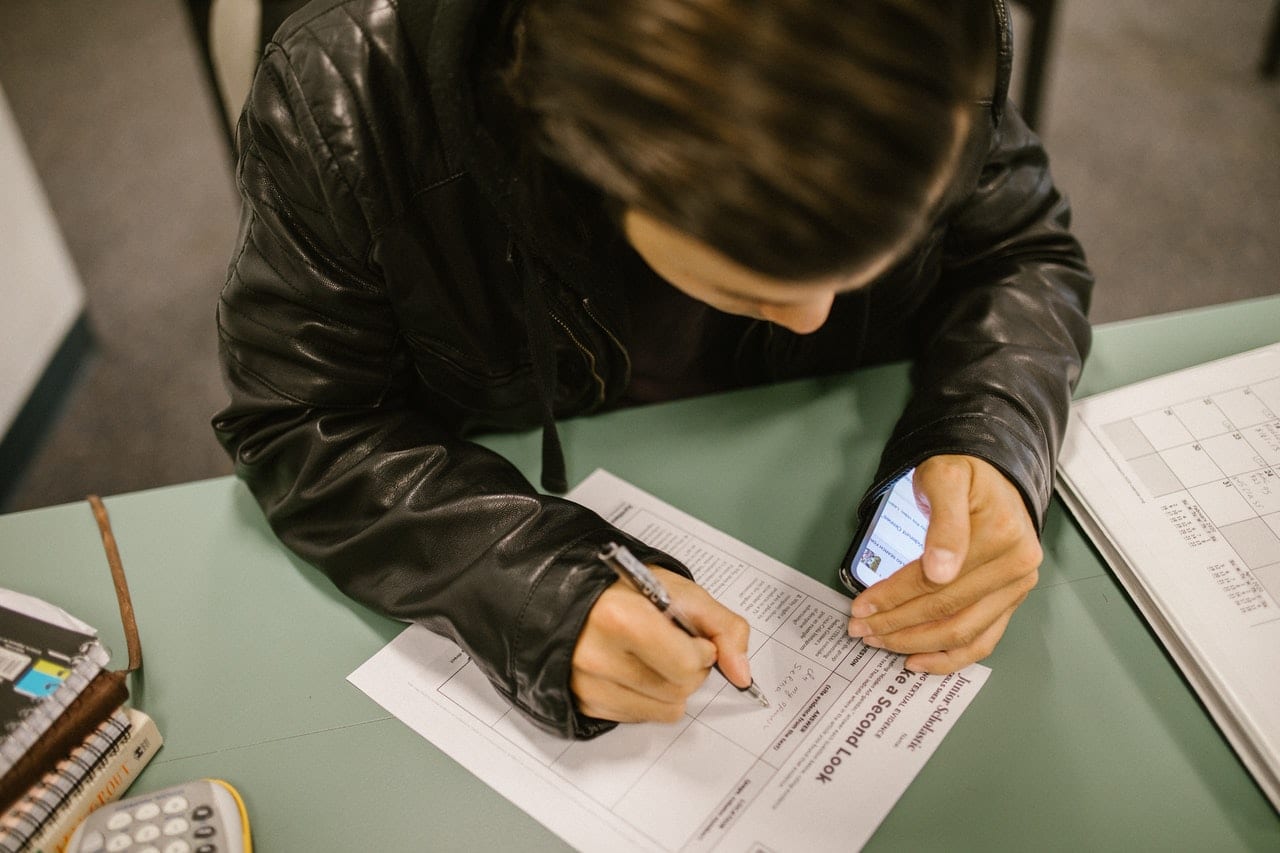A huge problem throughout the remote learning experience, and even since the dawn of Google, itself, has been the fact that there are now so many ways for students to cheat on assessments. How can we build valid assessments when we can’t even see the students? And how can we prevent them from cheating?
If all we’re trying to do is outsmart the students who choose to cheat, we’re already losing the battle. And we’ve lost it on a couple fronts. On one of these fronts, we certainly need to maintain the “battle”. However, as I’ll argue, there is at least one front on which we need to consider what we’re fighting for.
The Front of Character, Ethics, and Academic Integrity
The area in which I believe we need to continue to battle cheating is in the area of character education and academic integrity. These types of things will not soon change. Students need to understand that cheating is unethical. Passing another’s work off as your own will not suddenly become acceptable. And the sooner students learn these types of things, the more they can steer clear of trouble as they get older. Students need to learn about copyright and intellectual property. We need to model appropriate behaviors for them and reinforce these things with our student code of conduct.
But there are creative ways students have now found to cheat, which include things like using paraphrasing sites (I’m deliberately avoiding linking to any of them) to re-word a friend’s answer so the answers do not look similar to the teacher who is grading with the naked eye. This is just one of the latest ways students have found to cheat. And I have to admit, it’s quite a clever one. We need to know stuff like this is out there. But there have always been ways to cheat. Some might argue that if it’s too easy to cheat, you can hardly blame a kid for cheating. In other words, if all they have to do is Google the answer to a question on our test, then shame on us. This manner of thinking is prevalent in many aspects of society, not just in school. Take, for instance, one local police department’s motto: “Lock it or lose it”. We all know what they mean, but in a way it almost suggests that if it’s not locked down, it deserves to be stolen. If we don’t “lock down” our questions, do we deserve to have kids cheat on them? In a district whose core values include Integrity, I think not.
We certainly need to teach kids what intellectual property is, help them understand, at a very deep level, what constitutes plagiarism (here’s a good resource: plagiarism.org), model adherence to copyright laws, and help students understand why cheating harms the cheater and hurts society in the long run (Here’s how I tried to help students understand this many years ago: 10 Reasons Not To Cheat).

(By the Way, Don’t Take it Personally)
All that being said, that doesn’t mean we have to take cheating personally, either. Just because a kid finds a way around our fancy ways of secure browsers and shuffled question sequences doesn’t mean they intend it as an affront on their teacher. Sure, it can be a little disappointing at times when we’ve spent so much time and effort trying to make cheating difficult. Or worse yet, it can be devastating if we have spent all kinds of creative time and effort trying to give “engaging” assignments that kids find a way around.
The fact of the matter is that many of the ways students devise to cheat are very intelligent and employ some admirable skills. They even form networks, the likes of which, were they purely academic, would be highly effective learning communities. That’s part of the reason people like hackers often end up with lucrative jobs in the ethical hacking industry: They’re cheaters. They’re good. They’re smart. And now they’re working for us.
The Other Front: Rethinking What Valid Assessment Looks Like
But if all we’re doing is bemoaning cheaters, looking back on the good old days when no one cheated (as if that actually happened), and trying to keep up with cheaters while we run just as fast as we can, we are never going to win. Students will continue to outsmart us, for several reasons. There are more of them than us. They have more time than us. They have skills we don’t realize they have. And while we’re busy trying to prevent cheating in one aspect of learning, they’re busy finding ways in other aspects. By no means am I suggesting that all students cheat. But you get my point.
Students always seem to take the path of least resistance. Maybe we should spend time thinking about why they do so. Part of it may just be that learning is hard work. And in some instances, it’s easier to get on with your day if you find a way around it. Who would blame students for that? We’ve all been there.
Perhaps we should look at why participation in our learning environments drives students to take the detour rather than embracing it full-on. What is it about the way we expect learning to occur that makes kids want to avoid it at all costs, even that of jeopardizing their integrity?
Rethinking assessment and learning environments will happen. We are on the right track with efforts like “Google-proofing” our questions and using PBL and performance-based assessments. We could use video or audio-based responses to our questions in Schoology, for instance. But often, these things end up being more work for teachers. We could try portfolio-based assessments, but until that catches on a little more, we might underestimate what kids can do based on the evidence they’ve curated.

One Thing is Certain
One thing is certain: we can not continue to use the old fashioned ways of assessing student understanding and expect to get valid and reliable results. The question banks are out there, just a search away. Copy and paste is way too easy of a skill to learn. In fact, the old ways could lead to further inequity in education, as our efforts run the risk of favoring students who are the most proficient with technology–those who have mad searching skills or can most efficiently cut and paste–just because they’ve had so much technology at their disposal all of their lives, while other kids have not.
What We Probably Should Do
What we probably need to do is spend more time discussing evidence–what does it look like when students are proficient? What can they do? In what ways will their thinking change, and how can we see that? How do we know the evidence we’re seeing is true and valid? And how can we involve students in this entire conversation?
Furthermore, we probably need to talk about what learning looks like in our classrooms and how we can ensure that what learning looks like in our classroom will actually benefit kids once they leave our classrooms. We need to talk about the way we learn new things, and study the ways students are already learning things outside the classroom. We need to not assume that students, if given the resources, do not have any capacity to have true academic goals with regard to our content.
Next Steps

I certainly don’t have all of the answers, but I do have further suggestions. However, if we’re concerned about making a difference and helping kids learn while keeping our own sanity, we need to give up the fight of trying to prevent cheating and shunning technology. It’s exhausting. And it’s taking up way more of our energy than it should. Let’s, instead, focus our energy on conversations centered around re-vamping assessments and rethinking kids’ learning environments. Let’s start with considering what the next steps are. But I guarantee you, thinking only about how to control everything on a kid’s computer is a futile step down a different path.
